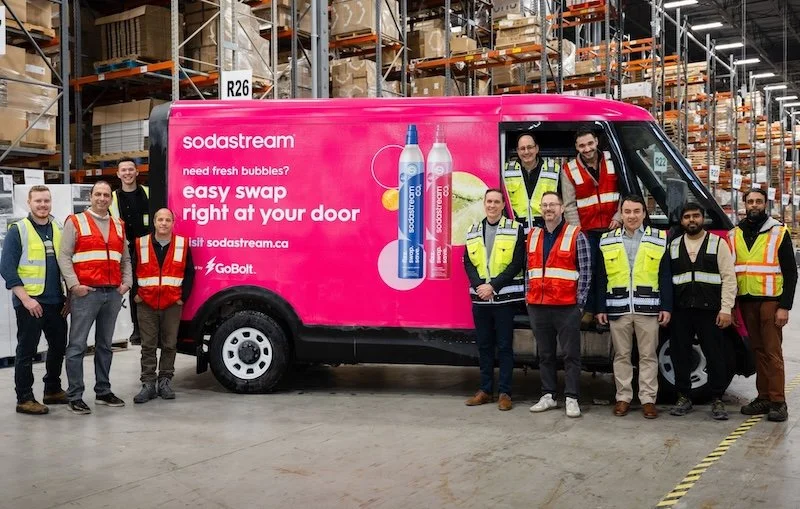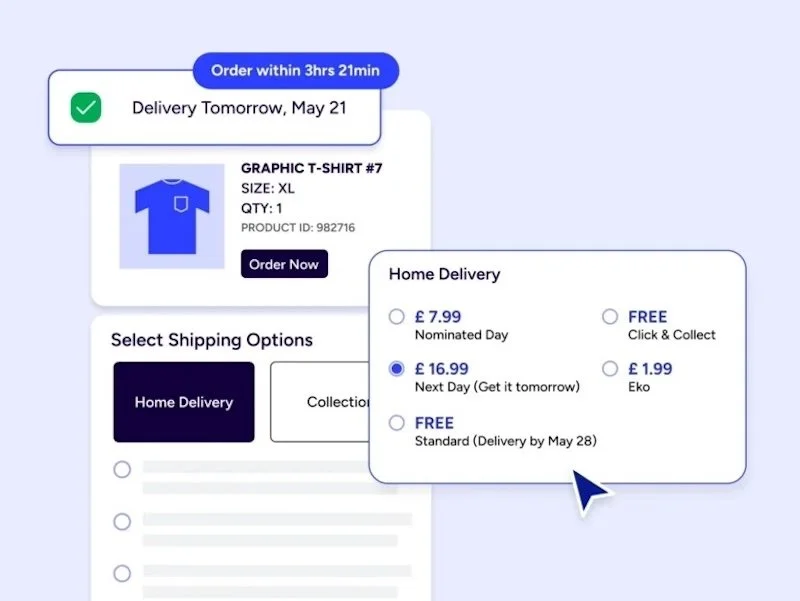Leveraging AI driven social media marketing to revolutionise foundation repair
The building foundation repair industry is strong and growing to meet the needs of an expanding real estate industry.
Fuelled by factors from aging infrastructures in developed countries, to increasing urbanisation in developing regions, to the rise of natural disasters attributed to climate change, the global foundation repair services market is forecasted to increase from an estimated 2023 value of USD $2.7 billion to USD $3.5 billion by 2033, according to a report published by Future Market Insights in July 2023.
Simultaneously, the rapid acceleration of advanced Artificial Intelligence (AI) technologies is transforming how foundation repair services companies are engaging with customers and keeping up with demand.
New techniques implemented with AI innovation are paving the way for optimizing operational processes, enhancing customer engagement, and establishing a variety of new benchmarks for industry standards.
AI led tools, particularly in social media marketing, have opened the door to an array of opportunities and possibilities in areas such as lead generation, customer experience, executive effectiveness, and workflow efficiency.
The strategic use of AI is improving the way that customers interact with foundation repair brands, and significantly contributing to companies’ day-to-day operational efficiency.
In July 2024 I discussed how the following AI-based strategies are revolutionizing the fundamentals of business processes and best practices in a presentation to the National Foundation Repair Association Annual Conference.
Overcoming data and analytical barriers
The foundation industry as a whole is faced with a variety of technical challenges that could be solved with new technologies.
Utilising new methodologies for data analytics with AI implementations is just one way that technology could help businesses streamline their decision-making process. Yet, despite the promise of improved efficiency, there has been very little innovation within the industry to overcome some of the current challenges.
The first problem confronting many companies is that they rely on data to make decisions, but that critical data is scattered across multiple platforms, thereby impeding accurate analysis.
Many businesses estimate that as much as 90% of their customer information and project detail data are unstructured, residing in different systems - or in the worst cases, only in the minds of salespeople and/or administrative personnel.
In competitive marketplaces, foundation repair businesses must have a right process to aggregate all their data in a single system, before they can use it effectively.
A second major challenge for service providers is understanding the customer sentiments expressed on various channels and touch points. Gathering customer sentiments is a complex process, especially when they are fragmented across a multitude of platforms.
These platforms include social media sites, online reviews, customer service interactions and engagement, and customers’ direct communication with the companies. It is nearly impossible to manually collect and analyse this information, and manually derive accurate conclusions that will help in developing actionable marketing and service-focused strategies.
Social media marketing is a wide spectrum of activities that allow companies to directly communicate with their target audience, with minimal amounts of money and effort. As retailers and service providers across diverse sectors have discovered, social media is a critical tool for gaining higher customer engagement and creating brand awareness.
However, the effectiveness of social media is often underestimated, and therefore underutilised, in the foundation repair industry.
Integrating data for informed decision-making
These challenges - data fragmentation, customer sentiment analysis, and maximising social impact - have traditionally been obstacles for many foundation repair companies.
Now, the wide availability of integrated, AI driven social media marketing solutions such as HubSpot, Salesforce, Zendesk, and other tools are providing new ways for companies to achieve higher levels of success in marketing and profitability.
While many people think of these platforms as enhanced email marketing systems, their larger advantage lies in the suite of benefits that can help businesses of almost any size operate better.
This includes providing a user-friendly system for aggregating fragmented data in a centralised hub, allowing a company to store and access customer, financial, and project information in a single cohesive system.
For example, HubSpot’s AI powered customer relationship management (CRM) system enables real-time data integration from various touch points, including social media platforms, customer service interactions, email conversations with customers, and post-sales customer interactions.
Thus, any direct conversation or interaction the customer has with the company can be captured for analysis and future reference.
Integrated data is also useful in lead generation, as illustrated in Figure 1, which depicts a snapshot of HubSpot’s Lead Generation Dashboard. This analytics dashboard is the central repository for all key metrics, such as contacts, website visitors per page, monthly visitor traffic, and time visitors spent on the website before clicking on the call-to-action (CTA) button.
The dashboard also shows which leads are qualified versus unqualified, so you can tailor marketing campaigns accordingly.
Figure 1
The dashboard’s visual representation of data, using bar charts and pie charts to simplify the presentation of complex information, allows for quick identification of trends and immediate adjustments to enhance campaign performance. In total, it provides a comprehensive view of a company’s marketing activities and informs knowledgeable decision-making.
The various platform solutions on the market today all typically feature a traffic analytics dashboard, which provides further detail to enhance decision-making across all channels.
Figure 2
As we see in Figure 2, this tool analyses traffic from multiple sources, including paid and organic search, and marketing campaigns over specified time periods. This is very useful for detailed trend analysis, identifying which channel is most effective for driving engagement.
Additionally, the dashboard provides various filters to depict granular levels of simplification and analysis, which ensures that our strategies are based on the most relevant data.
Harnessing customer sentiment for better engagement
It is powerful to know what your customers feel about your brand, and how they engage with it.
AI tools like Clarabridge, Trustpilot, and Intercom, to name a few, give us the power to understand customer sentiments scattered across different channels.
Among their many advantages, these innovative technologies often use Natural Language Processing (NLP) to analyse customer feedback from social media platforms, direct communications with customers, and reviews that customers post online.
For example, Clarabridge’s algorithm uses NLP to provide deeper insight into customers’ emotions in real-time, by capturing and analysing customers’ engagement and conversations about the company, and its products and services.
This allows companies to identify potential issues well before they damage the brand’s reputation. Furthermore, once the customers’ emotions are known and evaluated, customer service teams can provide a swift response to negative sentiments before they gain internet traction and become bigger problems.
One of the greatest advantages of this tool is that the bigger the organisation, the better the results you can get, by collecting data from a wider net of various sources, including call centres, customers' survey responses, and more. This provides a complete view of customers’ sentiments that take place at different touch points in their brand recognition journey.
Besides the quantity of results received, NLP tools offer unmatched data quality, by giving us the ability to understand a customer’s context and tone, and decode the emotions behind each customer’s interactions.
We can also use this information to prioritise customers’ issues based on the intensity of their sentiments, ensuring that urgent issues are addressed first. Collectively, these features can be used proactively and reactively to increase customer satisfaction.
In today’s influencer-driven marketplace, brand management has become a pathway to growth and success. Company executives, sales and marketing teams, and customer service representatives are all using these types of AI tools to build brand loyalty and create excellent experiences, which turn satisfied customers into brand ambassadors.
Maximising social media impact with AI
Good data and customer sentiment analysis provide a strong foundation on which to build highly targeted marketing strategies. AI integrations further enable better planning through process improvements that yield robust information useful in designing campaigns.
For example:
Customer segmentation: AI significantly reduces time and saves costs associated with grouping customers into different segments based on behavior, demographics and engagement
Lead scoring: AI determines customer interactions to qualitatively score the lead that is most likely to convert
Customer journey mapping: AI helps identify a customer’s various touchpoints
Predictive insights: AI can forecast various trends based on customers’ current information and their usual activities online.
Complementing these applications, AI integrated tools such as Hootsuite and Sprout Social enable savvy marketers to maximise their social media impact by using AI to streamline content creation and automate customised campaigns.
While AI is now widely used to create ads, photos, videos, and text for marketing purposes, social media marketing is more than just content creation. To deploy social media effectively, you need data driven evidence to understand optimal posting days and times, as well as content performance analytics that illustrate engagement rates.
Integrated AI tools do all this, and provide for online listening, offering insight into what people are saying about your brand on various social platforms.
Additional benefits include capabilities to create and schedule social media content in advance, enabling marketing teams to plan and work more efficiently. In its 2024 “The State of Marketing” report, HubSpot research found that automated AI social media tools were contributing to a 40% decrease in time that employees previously spent on manual tasks, freeing staff to work on other projects.
Besides campaign automation, the report noted that AI tools helped marketers save three hours per piece of content creation, and two and a half hours per day, overall.
AI enables brands to enhance their service and communications even more, with automated chatbots that help customers in real-time, messaging apps that offer real-time information and updates, and personalisation capabilities that make customers feel highly valued.
HubSpot’s research also found that brands experience 50% better customer re-engagement after activating automated tools such as chatbots and messaging, which improve the customer experience.
As more companies embark on digital transformations and integrate AI tools into a wide range of business and marketing operations, research is clearly showing that AI innovation is driving better financial and operational outcomes. Lead conversions, customer engagement, and customer satisfaction is trending upwards, while automation is reducing labour and process costs.
For foundation repair businesses, as for those in other industries, revolution equals evolution. Companies who can embrace change in their business and marketing strategies, take advantage of new technologies, and recognise that social media marketing is mandatory will be more competitive and better positioned to thrive.
About the author
Milan Bulchandani is Social Media Manager at CL Support Services, a business management organisation that provides expert administrative and marketing support to construction and foundation repair contractors.
He brings more than 12 years of experience to his role, where he is responsible for leading the execution of advanced social media strategies that amplify brand visibility, increase customer engagement, and generate qualified leads.
By leveraging artificial intelligence (AI) tools to assess performance metrics, optimise strategies, and ensure high return on investment (ROI), he plays a critical role in contributing to his organisation’s operations and profitability.
Milan shared his thought leadership and innovation expertise in an educational presentation on Social Media Customer Interaction at the National Foundation Repair Association (NFRA) 33rd Annual Conference, held 10th-12th July 2024 in Frisco, Texas.

































Continue reading…